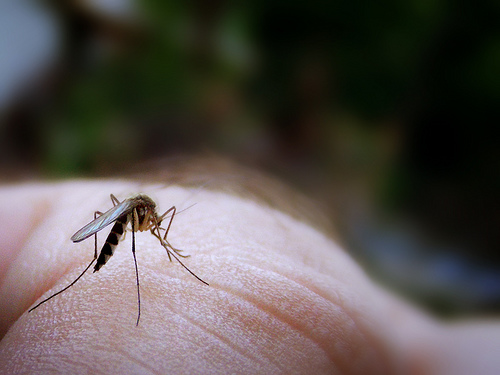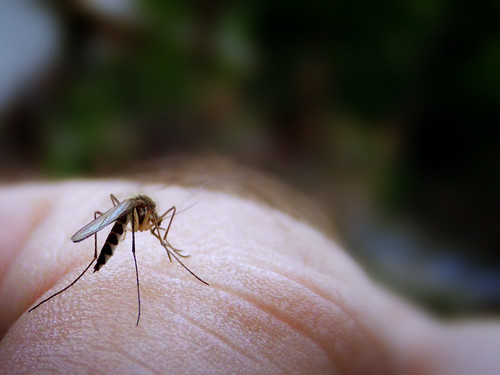Health
First Aid For Toddlers: 6 Home Remedies To Ease Itchy Insect Bites

There are few things more irritating for toddlers than an insect bite swelling up in their arms or legs. Although there are various ways to prevent insect and bug bites in the first place, these repellents cannot guarantee 100% protection. Pesky insects and bugs have a way of preying on even the smallest bit of exposed skin. With that said, aside from taking necessary precautions against insect bites, it is equally important to learn the first aid treatment for itchy insect bites in children.

Why Do Insect Bites Itch?
Itching is a low-level pain. The insect injects a type of protein into the skin of its prey which causes redness, inflammation, tenderness and heat. This reaction will then lead to itching or skin irritation.
The natural reaction of the human body to every bite is to release histamine, which is a compound that signals an allergic reaction. This histamine release will cause mild itching and stinging sensation which usually fades away within a day or so. Unfortunately, there are some types of insect bites, such as those caused by bees, wasps, and hornets, that may induce more serious reaction in children including fever, hives, muscle cramps, and swollen glands.
There are also some children who suffer from anaphylaxis reaction to certain insect venom. The signs and symptoms of this reaction includ the following:
- Nausea and vomiting
- Abdominal pain
- Difficulty swallowing and breathing
- Facial swelling
If your young one develops any of these severe reactions after getting bitten or stung by an insect, immediately seek medical attention. But for mild itching and swelling, there are simple home remedies that can relieve your child’s itch. The following are some of the easy DIY remedies that are safe, natural, and chemical-free.
Effective Natural Remedies For Insect Bites
Ice:
This is one of the first aid treatments for any type of insect and bug bites. Providing a shock of cold therapy on the bite area will relieve your child from itching and keep swelling in check. Ice can numb the nerves which conduct itching and pain; thus, the cold therapy will keep your young one from feeling either. Some people also advise applying heat therapy since it can also relieve the itching; however, your child will experience a rebound release of histamine which worsens the itchiness once you remove the hot compress.
Honey:
This natural sweetener contains anti-inflammatory and anti-bacterial property; thus, it is an excellent remedy for itching. Honey also works wonders for bee and wasp stings. In fact, this natural sweetener is even added to natural lotions and balms due to its beneficial properties. If your toddler was bitten by an insect or bug, you can dab a little bit of honey on the affected area.
Tea Bag:
Cooled tea bags can ease the swelling caused by insect bites. The tannins found in tea will act as an astringent which draws the extra fluid out of the bite; thus, reducing the chances of inflammation.
Toothpaste and Mouthwash:
Applying a small amount of toothpaste onto the sting site will ease the pain and itching. The fluoride from the toothpaste will act as an antihistamine which relieves itching within minutes. You can also apply mouthwash onto the sting using a cotton ball. The antiseptic properties of the mouthwash will keep the bite area from getting infected.
Lemon and Lime:
These citrus fruits are known anti-bacterial and anti-microbial. The juice or peel of these fruits can kill different kinds of bacteria. Although lemon and lime can ease the itch, your child might suffer from a blistering reaction if he stays under the sun for long periods after you applied the juice onto his sensitive skin. As a tip, you must keep your toddler indoors when using this citrus remedy.
Peppermint:
The cooling sensation produced by the peppermint will help relieve itching. This remedy is an excellent alternative to rubbing toothpaste onto your toddler’s skin. All you have to do is apply a drop of the peppermint essential oil or the paste from crushed peppermint leaves.
These natural home remedies are only effective for mild and localized reactions. For more serious reactions, such as anaphylactic symptoms, immediately seek medical attention before it is too late. As a precautionary step, it is best to use natural insect repellents to prevent insect and bug bites and apply practice preventive pest control solutions at home.
Citations:
- James Jordan.”Mosquito bite”. June 25, 2008. Online Image. Flickr. Aug 05, 2013
Featured images:
License: Creative Commons
image source
The author, Kris Lim, is a blogger for health and wellness websites where she offers natural home remedies for insect bites and stings. She recommends her readers to take necessary precautions against pest infestation by hiring the professionals at http://insightpest.com.
-

 Tech11 years ago
Tech11 years agoCreating An e-Commerce Website
-

 Tech11 years ago
Tech11 years agoDesign Template Guidelines For Mobile Apps
-

 Business6 years ago
Business6 years agoWhat Is AdsSupply? A Comprehensive Review
-

 Business10 years ago
Business10 years agoThe Key Types Of Brochure Printing Services
-

 Tech8 years ago
Tech8 years agoWhen To Send Your Bulk Messages?
-

 Tech5 years ago
Tech5 years ago5 Link Building Strategies You Can Apply For Local SEO
-

 Law5 years ago
Law5 years agoHow Can A Divorce Lawyer Help You Get Through Divorce?
-

 Home Improvement6 years ago
Home Improvement6 years agoHоw tо Kеер Antѕ Out оf Yоur Kitсhеn































